Covid ICU staff: 'The psychological impact will be massive'
- Published
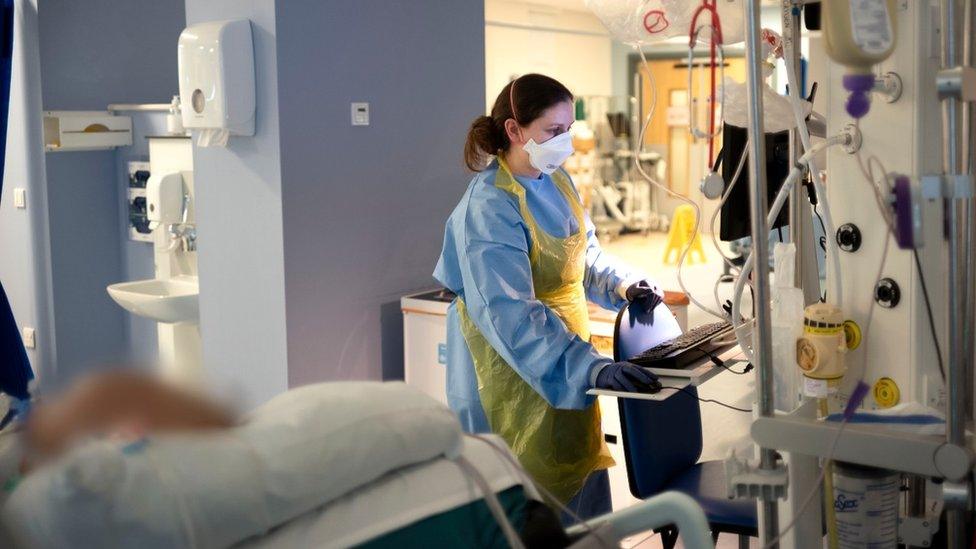
The critical care unit at Queen Elizabeth University Hospital in Glasgow has seen more Covid-19 patients than any other in Scotland.
Jen Dolan and the other specialist nurses have held the hands of many of them and they are still doing it.
"There is no feeling in the world like holding somebody's hand when their family can't be with them and their heart beats its last beat," she says.
"That's just one of the hardest things in this world, when somebody dies without their family."
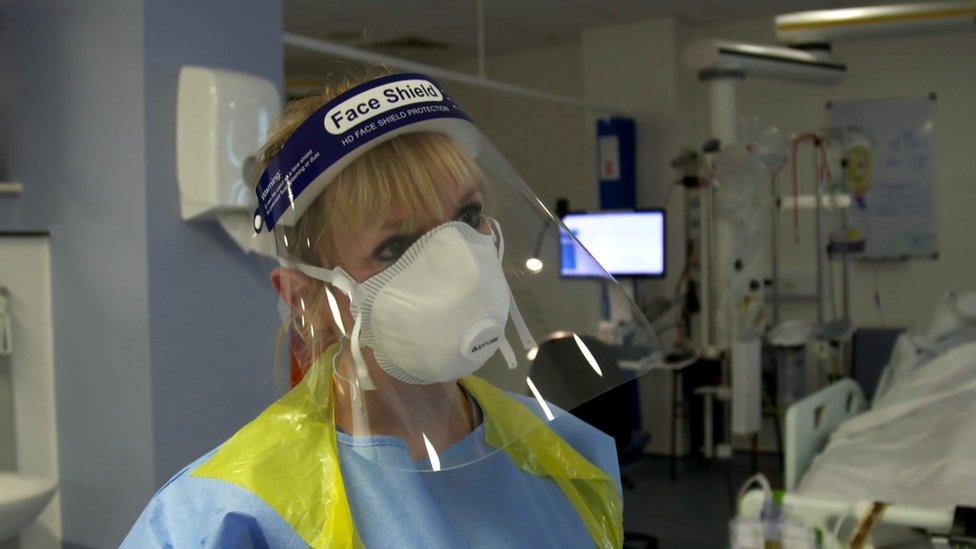
Jen Dolan says the past year has been very hard for ICU staff
The nurses hold phones to the ears of unconscious patients, so that relatives can talk to them without getting any response.
They keep patients clean-shaven, update them on their favourite soaps, and pin cards and letters that may never be read around the bedsides, next to monitors and tubes.
Jen says she has always thought that nursing was a privilege but this past year has been harder than previous ones.
"We've had an awful lot of families come in - husbands and wives who haven't made it - and it's been incredibly hard not to have relatives in like we normally do," she says.
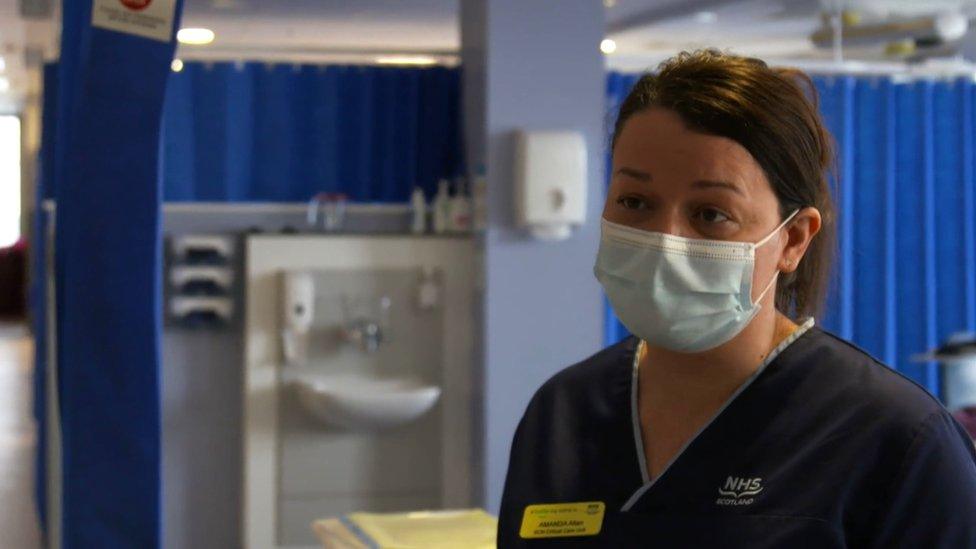
Senior charge nurse Amanda Allan says the volume of patients has been overwhelming at times
The staff have become experienced in their treatment of the virus, but senior charge nurse Amanda Allan says the volume of patients has been overwhelming at times.
"It's just come in an absolute tidal wave of your sickest patients, whereas in normal circumstances there's a trickle," she says.
"They just kept coming and coming and coming. It was relentless and, as well as the Covid patients, particularly in the second wave, there was a huge influx of other patients requiring intensive care, very acutely ill from trauma, and post-operative patients."
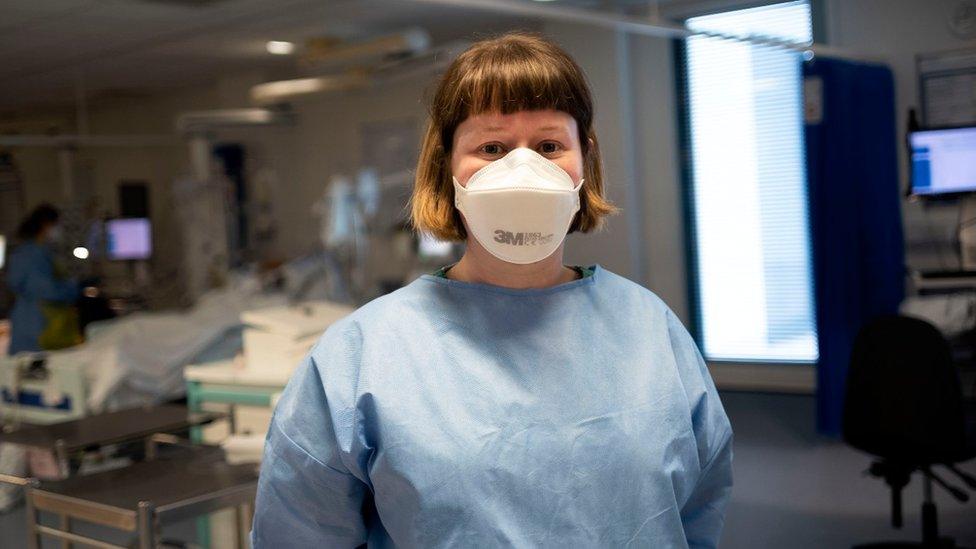
Emma Small says the psychological impact on staff will be massive
Intensive care charge nurse Emma Small says the stream of Covid patients being admitted to ICU at Scotland's biggest hospital has recently slowed down but it has not stopped.
"The tap is still running," she says, referring to the new patients who continue to arrive from A&E.
Ms Small is concerned that enduring a year of the Covid pandemic has left staff struggling to deal with the impact.
"I think people are coping, but we're not dealing with it," she says. "We're dealing with things completely differently, and I think the psychological impact will be massive."
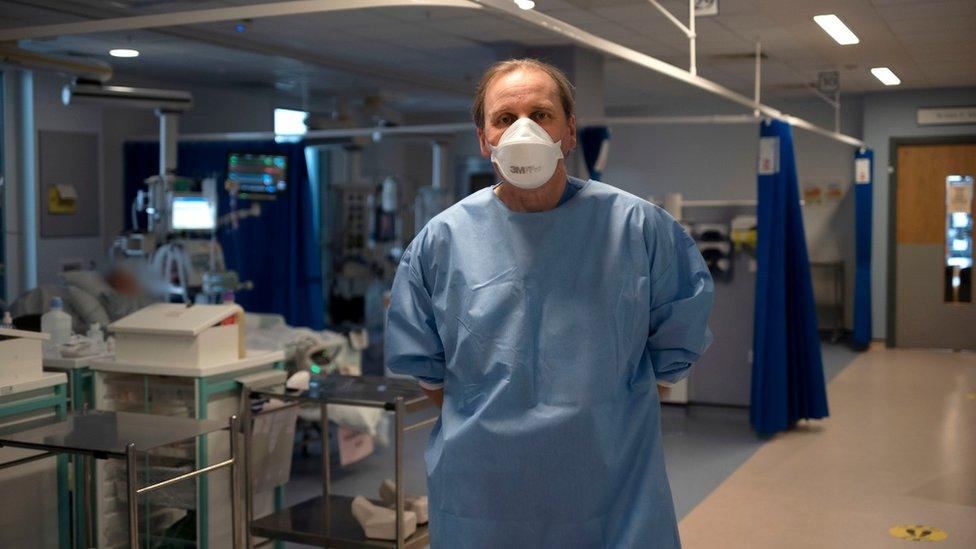
Dr Sandy Binning has managed the ICU's expansion to deal with high demand
Dr Sandy Binning has managed the ICU's expansion to deal with six months of sustained high demand.
He says three of the six units on the critical care floor were almost full of Covid patients, who were often there for 20, 30 or 40 days each.
Extra ventilators imported from Japan were used to upgrade high dependency beds.
"At a peak, we had over 30 patients ventilated at the one time and another 15-20 receiving high-flow nasal oxygen as a way to try and prevent them going on a ventilator," he says.
In total, more than 200 patients have needed intensive care here over the course of 12 months, most in their 50s and 60s.
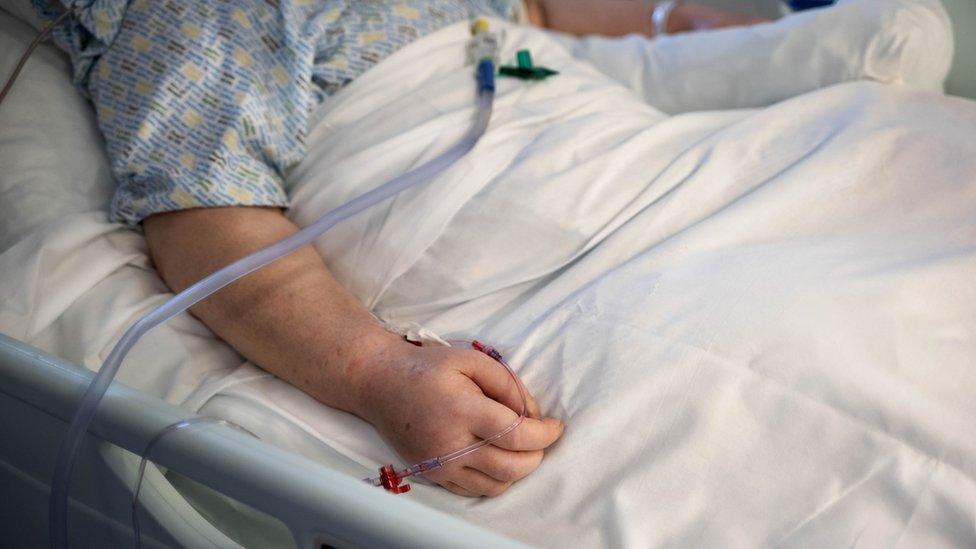
Dr Binning says it is too soon to see the impact of the vaccination programme on the unit.
"Once the rollout to that age group happens then we'll notice a big, big difference in the demand for critical care and hopefully a big, big difference in society," he says.
"I think there's no doubt the vaccine is going to have a big impact on transmissibility and also the severity of the disease. But there'll still be patients who will require critical care due to Covid-19.
"Our workload may be high again next winter so it's a matter of recharging the batteries over the summer."
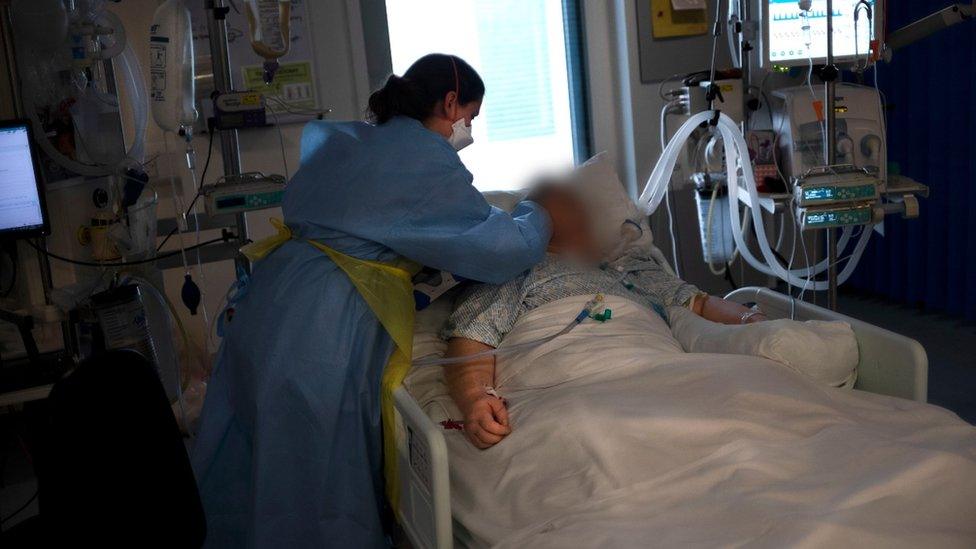
Some of the nurses say morale is low, but the team continues to support one another, with the help of NHS psychologists.
"I worry that in the future, when things begin to calm down, it's going to be a time of reflection," says Ms Allan.
"I hope that we'll have the resilience to get through this together.
"We've been working 150% for over a year now.
"We've all pulled together and I think the nursing staff are just possibly relieved that we're beginning to see a time where things are going to be a bit better."